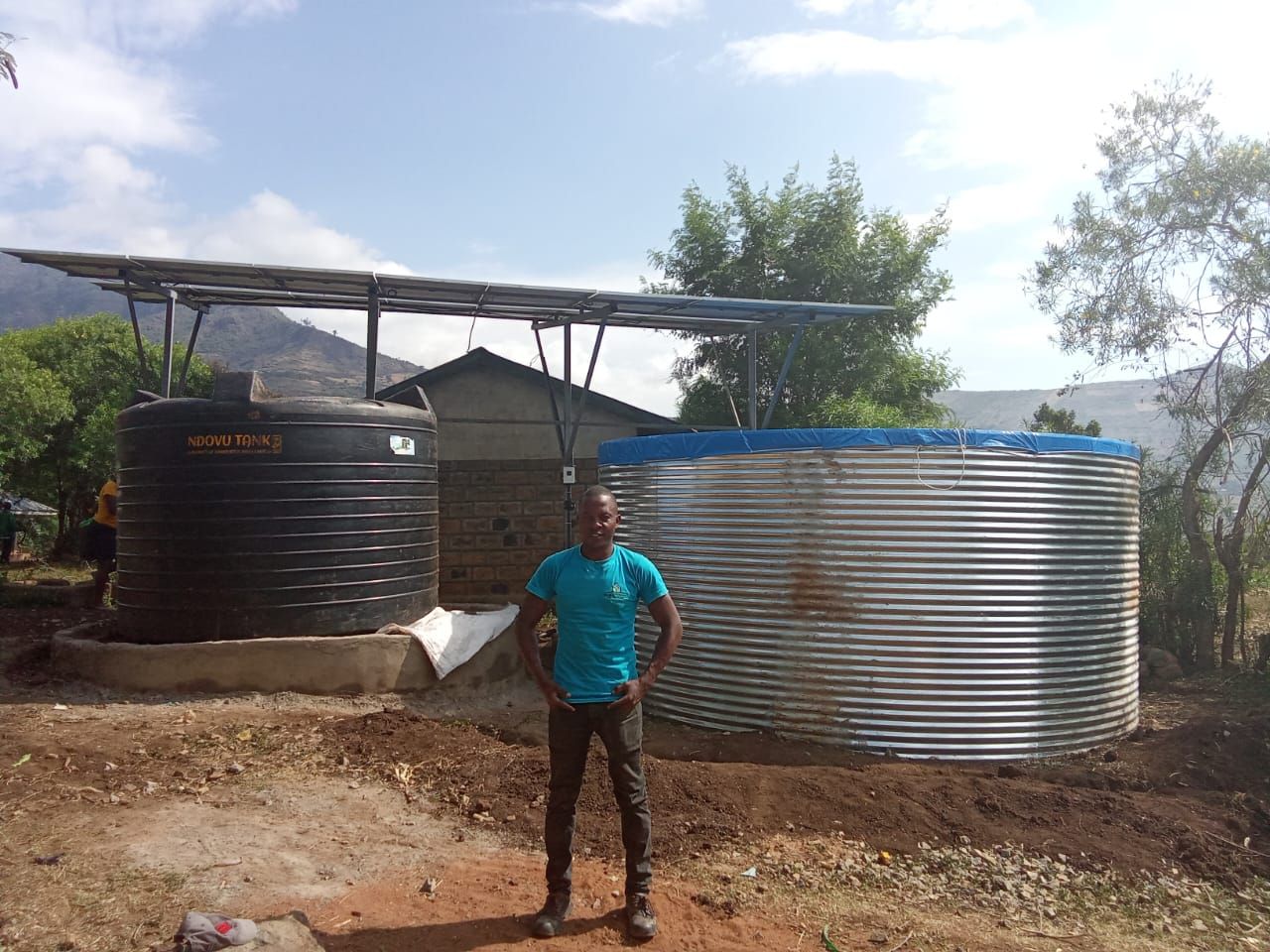When Andrew Massaro landed in Homa Bay, Kenya in 2022, he encountered a major contradiction: a region with plenty of fresh water, vast land and people but where food insecurity and poverty run deep.
Adjacent to Lake Victoria, the second-largest freshwater lake in the world and the biggest in Africa, Homa Bay had for years known fishing as the only source of economic activity, despite the area’s abundant resources and opportunities.
“Kenya ranks as a middle-income nation but in rural Homa Bay there’s nothing to show for the status,” Massaro tells AgFunderNews.
In 2022, Massaro decided to help change the narrative of Homa Bay by co-founding agrifood startup Stable Foods, which offers smallholder farmers a low-cost “irrigation-as-a-service” subscription that also includes access to inputs, markets and training on regenerative agriculture practices. The company was founded in partnership with Kenyan aquaculture company Victory Farms.
For Massaro and the rest of the team, the strategy was clear: utilize the waters of Lake Victoria to build a sustainable system of farming through irrigation. In essence, the strategy involved opening a new channel of economic activity in the area to complement fishing thus addressing the prevalent challenge of food insecurity and poverty in the region.
Massaro left a high-profile job at Ford Motors in the US solely because he felt he was not making a significant impact to society and due to his strong convictions on social enterprising.
At Ford Motors, one of his last assignments was designing a sports utility vehicle in a segment that already had seven models. “I didn’t really think that adding an eighth was really going to add any value to the world or community,” he asserts.

A ‘game changer’ for smallholder farmers
In Homa Bay, Stable Foods hopes to positively impact local communities and play a transformative role in Kenya’s quest to tackle food insecurity and rural poverty.
Over the past two years, the startup has invested heavily in irrigation infrastructure that transfers water from Lake Victoria to smallholder farmers. Through internal resources and $600,000 in pre-seed funding from venture studio Pyramidia Ventures in 2022, Stable Foods has managed to build up a vast infrastructure network.
Getting water to smallholder farmers in a region where most soils are pretty acidic with a pH level of less than five — well below the suitable pH of between 5.5 and 7.5 — has been a game changer, says Massaro.
“We made farmers understand that water is valuable because irrigation allows for more crop yields, more harvest per year and is an insurance product against drought,” he notes.
The response from farmers has been encouraging. Already, Stable Foods has contracted 103 farmers who exclusively depend on the company’s irrigation product to produce food crops including tomatoes, Black nightshade (manangu), kale, spinach, onions, beans, cowpeas (kunde) and others.
To access the product, farmers pay a fee of KES 6,000 ($45) per acre per month. A majority pay six or seven times a year depending on rainfall and when they are planting.
According to its assessments so far, average tomato farmers rake KES 600,000 ($4,450) to KES 700,000 ($5,200) per tomato harvest per acre, with the cost of water during that three-month period being just KES 18,000 ($135).
‘Real impact in driving food production’
Stable Foods believes it will recoup the capital expenditure that went to building the irrigation network within a couple of years. Since the equipment is solar-powered, the startup has near-zero operating expenditure, according to Massaro. More importantly, Stable is holding to its mission of reducing food insecurity through climate-friendly practices.
“The cost of water is less than 3%. This is real impact in driving food production,” he notes, adding that Stable Foods has a trading component for off-taking, thus guaranteeing farmers a ready market for their produce.
The dynamics of supply and demand have meant that as the principle off-taker, Stable Foods works with farmers to plan and plant food crops according to market needs. Through its commercial linkages, the firm understands what the market wants, and can feed that into production planning in collaboration with the farmers.
Currently, Stable is looking for large-scale, consistent commercial buyers to mitigate price fluctuations and help guarantee that farmers get the best returns for their produce round the year.
Over the next two years, Stable Foods has ambitious plans to expand and is currently seeking around $2 million in seed funding to enable it to purchase more irrigation equipment and expand reach. The aim is to sign and contract 700 new farmers in Homa Bay before starting to replicate its model in other parts of Kenya; Stable eventually plans to go regional in East Africa.
The funds will also help the startup invest heavily in technology. With its minimum viable product well proven, Stable reckons that technologies such as digitally controlled irrigation valves, smart meters, remote sensing, moisture sensors, soil analysis, sunlight imagery, drone imagery and internet of things could be instrumental in increasing production threefold.
The firm also wants to build a large data set of its smallholder farmers, all the inputs they use, and labor needs, among other things. The ultimate plan is to put all the data in a predictive artificial intelligence model, something that will enable it to continue being the lowest-cost producer.
Massaro says Stable Foods’ most heavily contracted farmers now are mostly commercial, which is a testament to the power of the company’s product.
“Our commitment to impacts, scalability and innovations is unwavering,” he adds.





